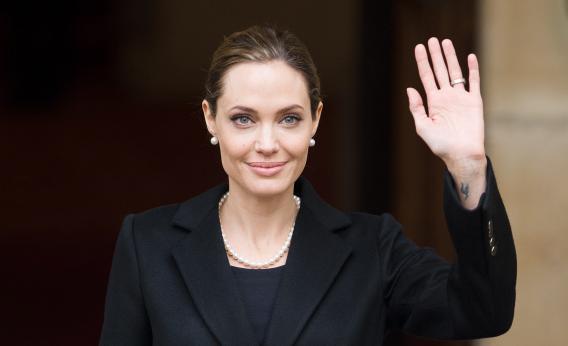I have a little bit of envy and a little bit of regret.
I envy Angelina Jolie her nipples. Back when I had my preventive double mastectomy, almost eight years ago, virtually no surgeon would agree to nipple preservation: It was believed to defeat the purpose. The thinking changed soon after my nipples were parted from me, taking with them most sexual sensation.
And I regret listening to my surgeon a few months later when he suggested taking out a bit of fat tissue that had necrosis. I opted for reconstruction using my own tissue—the surgeons performed a miracle by scraping enough fat out of my abdomen to create two small breasts—and a small part of the right breast turned hard. The surgeon said I could wait a year or two for the clump to break up, or he could take it out. The online forums said there would be a dent; the surgeon laughed it off—and I admitted it sounded ridiculous. Now I have a slight dent in my right breast.
And that is all the negative feeling sacrificing my breasts has engendered. In February 2004, I learned I carried a mutation in the BRCA1 gene that, combined with a strong family history of breast cancer, connoted an 87 percent chance of developing the disease. I had the surgery in August 2005. After the initial physical recovery, which was brief but difficult because of the complicated reconstruction (the surgery lasted more than 14 hours), I felt as though I had ended an abusive relationship. Now that my breasts have long been cut into hundreds of tiny slices and mounted on microscope slides (no malignancy found), I can say it without appearing to be boasting: They were stunning. They impressed lovers and, depending on the way I dressed, some passersby. They brought me immense sexual pleasure. They also nurtured my daughter, born underweight and sickly. I loved them.
But, abusive partners that they were, they hurt me regularly. I stayed up nights imagining they would kill me: Statistics told me that eventually they would. I listened to them obsessively, trying to catch any sign of trouble. I ran to the doctor when I thought I felt a thickening, or when I mistook period-related pain for something else. I also went to regularly scheduled appointments: mammograms and MRIs every six months, with resultant biopsies (MRIs will always pick up something) and weeks spent waiting for the results. After I learned of my mutation, my life revolved around my breasts in a way that was not at all pretty, sexy, or nurturing: I would be on the cancer track until I actually got cancer. I simply chose not to wait. Not only did I get to give up on the endless procedures and the sleepless nights: I also had a non-debilitating surgery (no lymph nodes needed to be removed) and no need for radiation or chemotherapy.
I like the body I have now, in part because I chose it. But also because small breasts look more natural on my small frame and are a lot more convenient: I used to have to hunt for the right bra and I still felt some discomfort running or even going over speed bumps, and now I do not wear a bra at all. Because I have written about my decision in Slate and, later, in a book, most people I know are aware of the operation, as are many people I do not know. In Russia, where I live, I have occasionally—but only occasionally—encountered a bewildered or even a negative reaction along the lines of “no sane person would ever cut off healthy breasts” and even “she probably did it because she is a lesbian and not a real woman.” Many thanks to Angelina Jolie for helping counter that misconception. As my kids got older, I gradually told them about the surgery; I think they understand it as the rational and right decision it was. And over the years, a lot of sensitivity has returned to my chest area and I’ve had some of the best sex I have ever had.
Psychologists might say that my evident high satisfaction with my decision to have a preventive mastectomy stems from the fact that the decision is irreversible. That may be. But more likely, it stems from the fact that I am no longer plagued by fear and worry.
